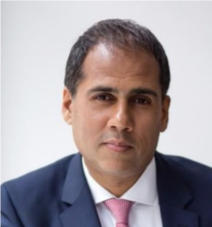Don’t Let These Biases Hurt Your Returns
Alpesh Patel|October 8, 2021

My book The Mind of a Trader was born from the desire to understand what made the great investors truly great.
And one of the stunning discoveries I made in the interviews I conducted was that these traders all rejected the many biases that infect the “average” investors they were so regularly trouncing.
The truth is, much of investing is a mind game. Yes, it’s about having information, but it’s what you do with that information that helps you become a truly great investor.
So let’s take a look at some common biases to see how they can hurt your investment returns… and how you can beat them.
Seeking Confirmation
Confirmation bias is the desire to seek out support for your beliefs and to resist information that contradicts or disproves them.
Studies suggest the biggest profits go to those few investors who resist confirmation bias. They interpret news dispassionately – without the tendency to confirm what they already believe. Instead, they maintain more of an open mind to contrary views than do their colleagues.
So if you find yourself often becoming elated at the slightest story that could be interpreted as a positive sign for a stock you hold… then you need to step back.
Is the story or announcement objectively positive for your holding?
Focus on raw stock data to stay objective. Examine profits, cash flow, sales growth, dividends, volatility and performance relative to the market.
To make sure I overcome my biases, I look at numbers the way companies interview candidates nowadays – I look at data without even knowing the companies’ names.
Chat sites are a good example of this idea in action. They reveal the extent of online traders’ confirmation biases. Stockholders often reply to bearish postings with abuse. Just try saying anything negative about a favorite stock of these keyboard warriors. It’s not pretty.
Better Than the Rest
Optimism bias is another problem investors face.
It is the tendency to believe you are better than average. For instance, studies reveal that 95% of drivers believe they are better than average.
In stocks, this bias leads to overconfidence in predictions. And overoptimistic investors underperform.
Most “experts” are particularly prone to this. Experts’ predictions about financial markets have been shown to be quite inaccurate – even less accurate than the average person’s views. In one study, garbage collectors made better predictions about inflation and GDP than finance ministers.
The lesson here is to not assume anything. Always allow for doubt. Just like back in my lawyer days… no case is open-and-shut. I don’t take the first stock I see at face value. Only after looking at the data do I find the stocks worth investing in.
It’s Risky
Another bias investors battle is risk-aversion bias. This means investors tend to be risk-averse when facing a profit… yet risk-loving when facing a loss. They take their profits too soon and let their losses run.
That’s why I always have trailing stop losses in place. The goal is to be prepared for success and for failure. A stop loss allows me to stand back and not let mind games cause self-sabotage.
And when facing a profit, you have to ignore how much you have made – or how your other positions are faring.
Many investors tend to go for higher-risk trades after a string of losses in an attempt to eradicate their past losses. They then take a quick, small profit to break their “losing streak.”
Instead, remember that your other past and present investments are irrelevant to when you should exit any given stock position.
Again… my stop loss helps me take emotion out of the decision.
Watch Out for the Herd
Herding is yet another fascinating problem for online investors.
People tend to regret decisions that go wrong more if they were minority decisions. They therefore tend to seek out other like-minded people to reinforce their views.
The problem is that the quality of a decision is not necessarily improved this way. It can instead lead to bad investment selections, especially if confirmation bias causes you to silence those with contrary views.
The key is to research the primary sources of data first, not the secondary views of others. Then, if others agree, that’s fine. If not, that’s fine too.
Being aware of these biases will put you in the right investing mindset… the mindset of a truly great trader.

Alpesh Patel
Alpesh Patel is an award-winning hedge fund and private equity fund manager, international best-selling author, entrepreneur and Dealmaker. He is the Founder and CEO of Praefinium Partners and is a Financial Times Top FTSE 100 forecaster. As a senior-most Dealmaker in the U.K.’s Department for International Trade, he is part of a team that has helped deliver $1 billion of investment to the U.K. since 2005 . He’s also a former Council Member of the 100-year-old Chatham House, the foreign affairs think-tank, whose patron is Queen Elizabeth. For his services to the U.K. economy, Alpesh received the Order of the British Empire (OBE) from the Queen in 2020. As a recognized authority on fintech, online trading and venture capital, his past and current client list includes American Express, Merrill Lynch HSBC, Charles Schwab, Goldman Sachs, Barclays, TD Bank, NYSE Life… and more.



